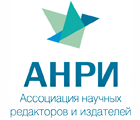DOI 10.17586/0021-3454-2022-65-9-640-647
UDC 004.896
MODEL FOR ASSESSING THE READINESS OF COMPLEX TECHNICAL SYSTEMS TAKING INTO ACCOUNT THE METROLOGICAL CHARACTERISTICS OF CONTROL TOOLS
A. F. Mozhaisky Military Space Academy, Military Research Institute; Senior Researcher
A. L. Kopeyka
A. F. Mozhaisky Military Space Academy, Military Research Institute; Head of the Laboratory
A. M. Baranovsky
Mozhaysky Military-Space Academy, Department of Automatized System of Preparation and Launching Rockets and Satellites;
Read the full article
Abstract. The issues of ensuring the reliable functioning of complex technical systems during operation by carrying out scheduled maintenance with the use of controls are considered. The possibility of conducting simulation modeling in order to evaluate the most important indicators of system reliability, for example, the availability coefficient, taking into account the metrological characteristics of the control means, is being investigated. The study is declared to be of great importance for confirming theoretical statements about the influence of quality control on reliability indicators. Analytical and simulation models for assessing the readiness indicators of a complex technical system are proposed. Simulation modeling is carried out on the basis of the AnyLogic software environment, the obtained results are used to construct dependences of the system readiness coefficient on the metrological characteristics (control errors) of applied control tools and service parameters.
Keywords: model, technical condition control, complex technical systems, simulation modeling, AnyLogic, readiness factor
References:
References:
- Kopeika A.L., Dorozhko I.V., Osipov N.A. Proceedings of the Mozhaisky Military Space Academy, St. Petersburg, 2019, no. 652, pp. 303–313. (in Russ.)
- Zakharova E.A., Dorozhko I.V., Kopeika A.L. News of the Tula State University. Technical Sciences, 2018, no. 10, pp. 490–498. (in Russ.)
- Averyanov A.V., Baranovsky A.M., Esaulov K.A. Journal of Instrument Engineering, 2014, no. 3(57), pp. 23–25. (in Russ.)
- Zakharova E.A., Kopeika A.L., Kuznetsov A.B., Shavin A.S. News of the Tula State University. Technical Sciences, 2018, no. 10, pp. 424–430. (in Russ.)
- Lubkov N.V., Spiridonov I.B., Stepanyants A.S. Trudy MAI, 2016, no. 85. (in Russ.)
- Zakharova E.A., Privalov A.E., Dorozhko I.V., Kopeika A.L. Trudy MAI, 2018, no. 103. (in Russ.)
- Zakharova E.A., Baranovsky A.M. Proceedings of the Mozhaisky Military Space Academy, 2019, no. 669, pp. 124–132. (in Russ.)
- Boyev V.D. Komp'yuternoye modelirovaniye. Posobiye dlya prakticheskikh zanyatiy, kursovogo i diplomnogo proyektirovaniya v AnyLogic 7 (Computer Modelling. Handbook for Practical Training, Course and Diploma Design in AnyLogic 7), St. Petersburg, 2014, 432 р. (in Russ.)
- Zverev G.Ya. Otsenka nadezhnosti izdeliya v protsesse ekspluatatsii (Assessment of Product Reliability during Operation), Moscow, 2010, 96 р. (in Russ.)
- Dorozhko I.V., Tarasov A.G., Baranovsky A.M. Intellectual Technologies on Transport, St. Petersburg, 2015, no. 3, pp. 36–45. (in Russ.)
- Lyubchenko A.A. Nauka i sovremennost', 2010, no. 5-2, pp. 246–251. (in Russ.)
- Yakimov I.M., Kirpichnikov A.P., Mokshin V.V. Bulletin of Kazan Technological University, 2014, no. 13, pp. 352–357. (in Russ.)
- Vityuk V.L., Guzenko V.L., Mironov E.A., Sevostyanov D.A., Shestopalova O.L. Basic Research, 2015, no. 5–3, pp. 493–498. (in Russ.)











